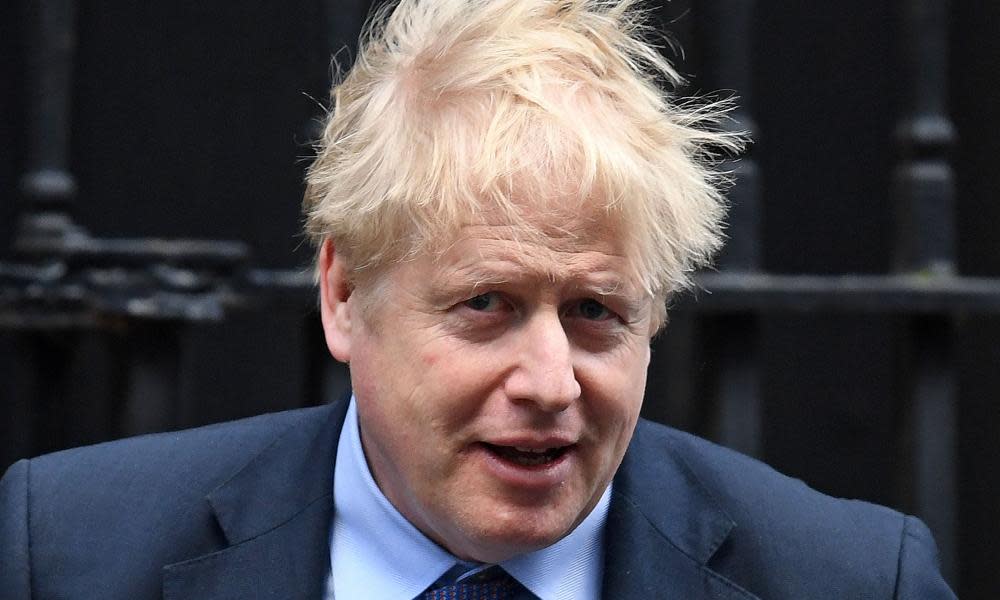The Guardian view on UK-EU talks: bluster can’t conceal brutal reality

The synthetic outrage and indignation fabricated in government over the deal it negotiated with the European Union reveal the truth-dodging at the heart of Boris Johnson’s plans. The prime minister has less than a year to build a new relationship – encompassing security, defence and economic ties – with the bloc. Mr Johnson secured an exit that rested upon two deals. One was a withdrawal agreement that tied Northern Ireland to the EU. The other was a political declaration with guarantees for a level playing field on environmental and labour standards as well as state aid policies to avoid UK firms gaining unfair competitive advantage in EU markets.
Mr Johnson played his part in toppling his predecessor, Theresa May, because her Brexit deal was too closely aligned with the EU. He wanted to leave because it would unleash the country’s potential by giving companies in areas from food hygiene to financial services greater leeway to deregulate. If he is right then Brexit will offer the land of milk and honey to firms as relief from their wanderings in an EU red-tape desert. So why upon leaving the EU, might Mr Johnson’s supporters wonder, did the prime minister book a return ticket to its bureaucracy?
Such doubts explain why Mr Johnson is trying to hollow out the legal commitments on Northern Ireland: as the Treasury warned him, they are “highly disruptive” to the region’s economy. It also, probably, accounts for his bid on Thursday to abandon commitments about the level playing field made in the political declaration. While the declaration was not legally enforceable, words do matter. The less sincerely Mr Johnson takes non-binding pledges, the more likely the EU will think that it needs a watertight legal contract for a future partnership. In a speech earlier this month David Frost, the UK’s chief Brexit negotiator, made – in nationalistic terms – the case for divergence. This was necessary, he said, to produce goods “relevant to our own countryside, and to produce crops that reflect our own climate, rather than being forced to work with rules designed for growing conditions in central France”. It is depressing to find this Little Britain view of EU regulations coming from No 10.
There will be a consequential loss of access to EU markets for a degree of divergence. To make up for this loss of trade Mr Frost, whose time in Brussels hardened his critical views of the place, says Britain has its eyes on the horizon of an economy where it will be able to set rules for new sectors quicker than an EU hidebound by a “fear of the future”. Mr Frost does make a concession to reality by admitting that there may be a “short-run cost” from being shut out of the EU but reverts to pure Brexitism by claiming this “will be overwhelmed rapidly by the huge gains of having your own policy regimes in certain areas”.
Mr Johnson risks repeating a familiar and weary strategy. Rather than engaging with the contents and pace of the talks, it appears the prime minister would rather play to the gallery – threatening to walk away from the negotiations or pledging to never surrender fishing waters. This will run down the clock towards the next cliff edge in December, where he will face a choice between a narrow deal, opting for an economically damaging “no deal”, or extending the timeframe for talks. If the past is any guide, he will yield in the endgame to the EU but will be too busy taking a victory lap to spell out the concessions he has made. One can only hope for the country’s sake that in the year ahead reality will have a larger impact than Mr Johnson’s bluster.


